
Gérard Xavier Marcel Depardieu, CQ is a French actor, filmmaker, businessman and vineyard owner known to be one of the most prolific thespians in film history. He has completed over 250 films since 1967, almost exclusively as a lead. Depardieu has worked with over 150 film directors whose most notable collaborations include Jean-Luc Godard, François Truffaut, Maurice Pialat, Alain Resnais, Claude Chabrol, Ridley Scott and Bernardo Bertolucci. He is the second highest grossing actor in the history of French Cinema behind Louis de Funès. As of January 2022, his body of work also include countless television productions, 18 theatre plays, 16 records and 9 books. He is mostly known as a character actor and for having portrayed numerous leading historical and fictitious figures of the Western world including Georges Danton, Joseph Stalin, Honoré de Balzac, Alexandre Dumas, Auguste Rodin, Cyrano de Bergerac, Jean Valjean, Edmond Dantès, Christopher Columbus, Obélix, and Dominique Strauss-Kahn.
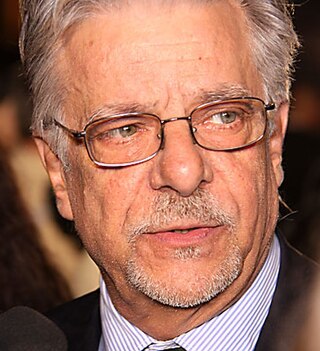
Giancarlo Giannini is an Italian actor and voice actor. He won the Cannes Film Festival Award for Best Actor for his performance in Love and Anarchy (1973) and received an Academy Award nomination for Seven Beauties (1975). He is also a four-time recipient of the David di Donatello Award for Best Actor.

Seven Beauties is a 1975 Italian language film written and directed by Lina Wertmüller and starring Giancarlo Giannini, Fernando Rey, and Shirley Stoler.
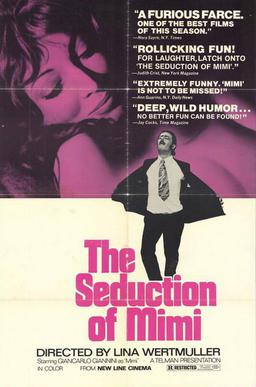
The Seduction of Mimi is a 1972 Italian comedy-drama film written and directed by Lina Wertmüller, starring Giancarlo Giannini as Mimi and featuring Mariangela Melato, Turi Ferro and Agostina Belli. The film was entered into the 1972 Cannes Film Festival. The screenplay was very loosely adapted for the 1977 film Which Way Is Up? starring Richard Pryor.

Jason Francesco Schwartzman is an American actor and musician.

Robert Coppola Schwartzman is an American filmmaker, director, screenwriter, actor and musician. Schwartzman is best known for directing Dreamland, The Unicorn, and The Argument, acting in his cousin Sofia Coppola's projects Lick the Star and The Virgin Suicides, as well as starring in The Princess Diaries and as the lead vocalist of the rock/pop band Rooney.

Love and Anarchy is a 1973 Italian film directed by Lina Wertmüller and starring Giancarlo Giannini and Mariangela Melato. The story, set in Fascist Italy before the outbreak of World War II, centers on Giannini's character, an anarchist who stays in a brothel while preparing to assassinate Benito Mussolini. Giannini's character falls in love with one of the women working in the brothel. This film explores the depths of his emotions concerning love, his hate for fascism, and his fears of being killed while assassinating Mussolini.

Mimic is a 1997 American science fiction horror film directed by Guillermo del Toro, written by del Toro and Matthew Robbins based on Donald A. Wollheim's short story of the same name, and starring Mira Sorvino, Jeremy Northam, Josh Brolin, Charles S. Dutton, Giancarlo Giannini and F. Murray Abraham.

Swept Away is a 2002 American adventure comedy romance film written and directed by Guy Ritchie; it is a remake of Lina Wertmüller's 1974 Italian film of the same name. The film stars Ritchie's then-wife Madonna and Adriano Giannini with a supporting cast featuring Bruce Greenwood, Jeanne Tripplehorn and Elizabeth Banks.

A Walk in the Clouds is a 1995 period romantic drama film directed by Alfonso Arau and starring Keanu Reeves, Aitana Sánchez-Gijón, Giancarlo Giannini, Angélica Aragón, Evangelina Elizondo, Debra Messing and Anthony Quinn. An American-Mexican co-production, the film is an English-language remake of the 1942 Italian film Four Steps in the Clouds.

Roman François Coppola is an American director, screenwriter, producer. He is the son of Francis Ford Coppola and Eleanor Coppola.
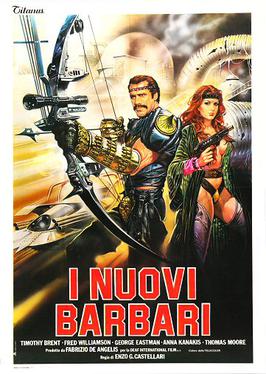
The New Barbarians is a 1983 Italian post-apocalyptic action film directed by Enzo G. Castellari, written by Castellari and Tito Carpi, and starring Giancarlo Prete and George Eastman. The plot takes place in 2019, following a nuclear holocaust, where two loners among the remains of the starving human race protect a group of pilgrims from a vicious gang bent on genocide.

Sorry, Haters is a 2005 drama film written and directed by Jeff Stanzler, starring Robin Wright, Abdel Kechiche, Élodie Bouchez and Sandra Oh. Distributed by IFC Films, the film premiered at the 2005 Toronto International Film Festival and received a limited release in North America on March 1, 2006. Sorry, Haters was released on DVD on August 8, 2006.
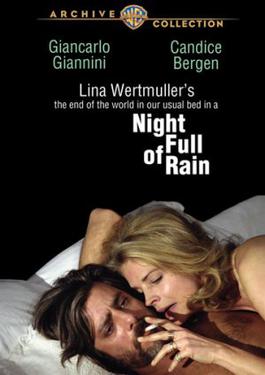
A Night Full of Rain is a 1978 Italian American film directed by Lina Wertmüller and stars Candice Bergen and Giancarlo Giannini.
Érick Zonca is a French film director and screenwriter.
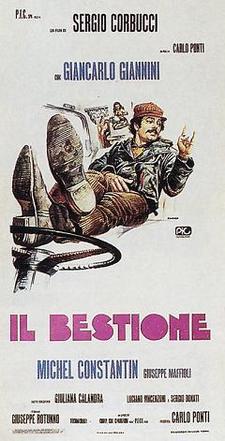
The Beast is an Italian comedy directed by Sergio Corbucci and stars Gabriella Giorgelli, Michel Constantin and Giancarlo Giannini.

The Art of Love is a 2011 French comedy film directed and written by Emmanuel Mouret. The film stars Mouret himself, Pascale Arbillot, Ariane Ascaride, Frédérique Bel, François Cluzet, Julie Depardieu, Judith Godrèche, Stanislas Merhar, Elodie Navarre, Laurent Stocker and Gaspard Ulliel, and is narrated by Philippe Torreton.

Michael Hoolboom is a Canadian independent, experimental filmmaker. Having begun filmmaking at an early age, Hoolboom released his first major work, a "film that's not quite a film" entitled White Museum, in 1986. Although he continued to produce films, his rate of production improved drastically after he was diagnosed with HIV in 1988 or 1989; this gave a "new urgency" to his works. Since then he has made dozens of films, two of which have won Best Short Film at the Toronto International Film Festival. His films have also featured in more than 200 film festivals worldwide.
Poetical Refugee is a 2001 French drama film directed by Abdellatif Kechiche, starring Sami Bouajila, Élodie Bouchez and Bruno Lochet. It was Kechiche‘s debut feature film and was awarded the Luigi De Laurentiis Award at the Venice Film Festival for best first film, winning seven awards, overall, at different film festivals.

















